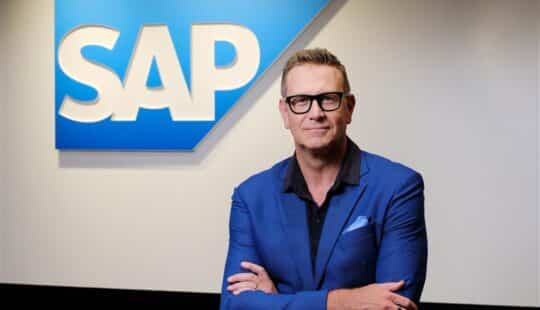In early 2020 Coles Group, one of Australia’s most trusted retailers and iconic brands, was in the midst of completing a bold, far-reaching HR transformation when it had to undertake a huge, unforeseen hiring surge to support customers during the COVID-19 crisis.
In facing into this challenge, the Coles HR team was able to draw upon the shared Coles Group values of customer obsession, passion and pace, responsibility, health and happiness. As Tammy Ryder, General Manager, People and Culture at Coles, put it, “The wellbeing of our team and customer is always at the heart of what we do.”
Coles knows how to do things in a big way. It’s a large-scale operation, with 120,000 team members, processing more than 21 million customer transactions each week, and providing its customers with products from thousands of farmers and suppliers. The Group has more than 2,400 outlets across its portfolio of Australian supermarkets, liquor and convenience stores.
“During the COVID crisis of 2020, Coles team members moved mountains to ensure a constant supply of goods during the pandemic, ensuring we could supply essential goods to our customers in a time of uncertainty” said Ryder.
Despite the truly unprecedented times, Coles was able to recruit for jobs and mobilise team members in a quick and agile manner.
“We started to see shopping behavior at the same levels we see during Christmas peak, as people started panic buying,” said Ryder. “Our supply chain was in overdrive, implementing innovative health and safety controls at lightning speed. We realised we needed a lot more team members, right away. And almost oversight, we went from a steady flow of recruitment activity into unprecedented, large-scale COVID-19 recruitment response mode.”
Ryder’s team made an initial ask for an additional 5,000 team members across the country to help with replenishing shelves, servicing customers and additional cleaning. To make this happen, the Coles team redesigned their recruitment and onboarding processes. They called it FastTrack, which removed manual store-based process steps by centralising recruitment activity.
For example, to enable speed and safety, as well as to expedite the hiring process, Coles immediately switched to implementing video interviews. The company also connected with businesses such as airlines, that were pausing operations due to the pandemic. Being able to communicate directly with these external workforces enabled Coles to scale team members quickly. After just six weeks, they’d been able to recruit 12,000 additional team members into the business.
Coles has also brought this level of passion and innovation to making progress towards diversity and inclusion (D&I) in the workplace. Coles sees difference as a good thing. Because they know that the differences of their team member’s background, experiences and perspectives can set them apart. But also bring them together.
Their differences help them spark ideas, create connections and discover commonality. Just as they have done for over a century, they’re focused more so than ever before on making Coles somewhere everyone feels like they belong.
From the very outset, this vision has transcended the kind of box-checking trap that can affect such initiatives.
“We recognise that the value of attracting and retaining diverse teams enhances our decision making and ability to innovate,” said Ryder. “Diversity teams and an inclusive culture are critical to the success of our overall business strategy.”
To progress gender equity, Coles has set gender targets to reach 40% women in leadership roles at an organisational level, as well as to improve male and female representation in each function to 30% of each gender. Setting targets at management levels ensure the company brings valuable diversity of thought into its leadership teams. They have also delivered inclusive leadership and unconscious bias training for senior leaders as part of their diversity and inclusion strategy, known as “Better Together.”
“In regard to Indigenous employment at Coles, the focus is on providing more opportunities for Aboriginal and Torres Strait Islander peoples, suppliers, customers and communities to engage with our business,” said Ryder. “The aim is to increase Aboriginal and Torres Strait Islander team member representation to 5% of our workforce and 3% of trade and management roles by providing great careers at Coles.”
Coles also recently finished a major HR transformation with SAP SuccessFactors within 18 months. The HR team then made the bold choice to deploy all modules at once, versus taking an incremental approach. It was not a simple nor straight-forward decision, but as Ryder explained, it made sense because retail is such a fast-paced business.
“Passion and Pace are two of our core values, so after going through 18 months of design and development of what we call myhub at Coles, we made the decision to go for it and cut over altogether,” said Ryder. “A ‘big bang,’ if you will. Our HR team believed it was the right approach for the business in the current climate.”
The technology itself was suitable for rapid adoption. The user experience is akin to an iPhone. And there’s no manual. Employees can simply start using it. Coles did carry out team training for which 90% of their people opted in. And it worked. Coles team members liked the new systems, which are intuitive and mobile enabled.
As with any big tech launch, there were some expected bumps and bugs at first. However. They resolved all the issues with a lot of support and collaboration between the Coles IT and HR teams, enabling them to exit hyper care within six weeks of launch.
The company had over 100,000 team members log in during the first week, updating details, engaging with the new interface, and checking pay slips. The new system gives Coles a great foundation to leverage now as it customises further builds to the system for its needs.
Moving to HR cloud solutions was not the only digital transformation Coles Group experienced in this short time frame. It was just one of several major projects that aimed to change the way the whole company uses digital technology to run the business. A big part of this is an overall move to becoming a “SAP House.”
To this end, Coles has implemented Ariba for procurement, SAP S/4HANA for Finance and Fieldglass for contingent workers. By aligning its SAP systems, the company can integrate seamlessly to deliver a great user experience and drive positive, progressive business outcomes.
Now that Coles has the SAP SuccessFactors system deployed, their P&C Digital Roadmap comprises a five-year vision that truly reimagines the role of P&C at Coles and how the department can elevate its partnership with the business to enable its corporate strategy.
This Roadmap is aligned to the Coles “Winning Together” people strategy. They have projects in flight that are focused on recruitment at the store level. The goals are to evolve the candidate experience, reduce the time to hire, automate and digitalise the experience.
The plan includes multichannel communications, along with job matching based on AI. For high volume processes, the HR team is looking at robotic process automation (RPA) and automation of high volume/ low value core HR transactions. Ryder’s group envisions using AI for query management and line manager support. They have projects focused on knowledge and content management, too. Analytics is a big play for HR at Coles. The goal is to use people insights from its 120,000 team member workforce to improve its services and performance to support the business.
Looking ahead, Coles HR is building on an excellent foundation that enables the department to chart its own course and really leverage technology. “The future is what we make it and I’m excited by what we’re working towards,” said Ryder.
This article also featured on SAPBrandVoice on Forbes



